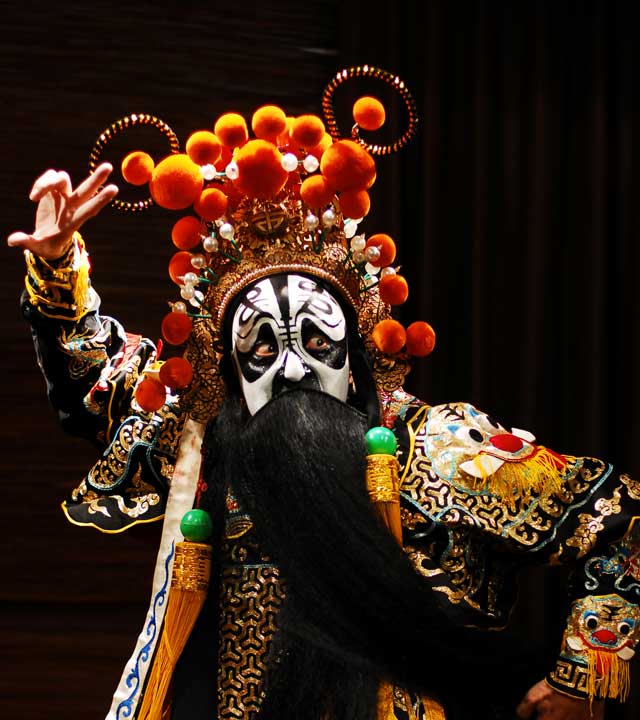I. The Tipsy Concubine
Precious Consort Yang Yu-huan (Yang Guifei) was the best-loved of all the consorts of the Tang Emperor Xuan-zong (685-762 AD). One day, the emperor invited Precious Consort Yang to the Hundred Flowers Pavilion. After waiting for a long time, she then realized that the emperor had instead decided to visit Another Consort. Poor Precious Consort Yang could only drink alone, distressed in ten thousand ways. And became very drunk.
The Tipsy Concubine, also known as Hundred Flowers Pavilion, is a representative classic piece of Mei an-fang. This splendid and complete ancient song (based on sipingdiao) and dance drama combines the beauty of various movements and footwork. Whether bowing, smelling flowers, dancing with a fan, “cloud dancing,” or drunkenly dancing, the movements are all ingenious. The changes in the spirited expression of the eyes in this piece of work require special skills as Precious Consort Yang moves from being filled with delight on her way to the meeting, to jealousy, boredom, and loneliness after she hears that the emperor has made two dates at the same time.
II. Farewell My Concubine
The time is 207 B.C. At the wild hilly site of Gai-xia, the Chu King Xiang Yu, is so outnumbered by his enemy that he has to retreat and barely makes it back to his headquarters. In his encampment, King Xiang’s favorite imperial consort, Concubine Yu. Yu tries to console him. Later they realizes that his front lines have been totally broken down, and that he and the small army that accompanies him are now alone facing destruction. King Xiang turns to despair as a message from the enemy leader predicting Xiang’s imminent defeat and death. In her attempt to distract him from the dire situation with some entertainment, Yu performs her famous sword dance. When the dance is finished, the Han army is reported to be quickly approaching. King urges Yu to flee, but she chooses to end her life with King’s sword.

